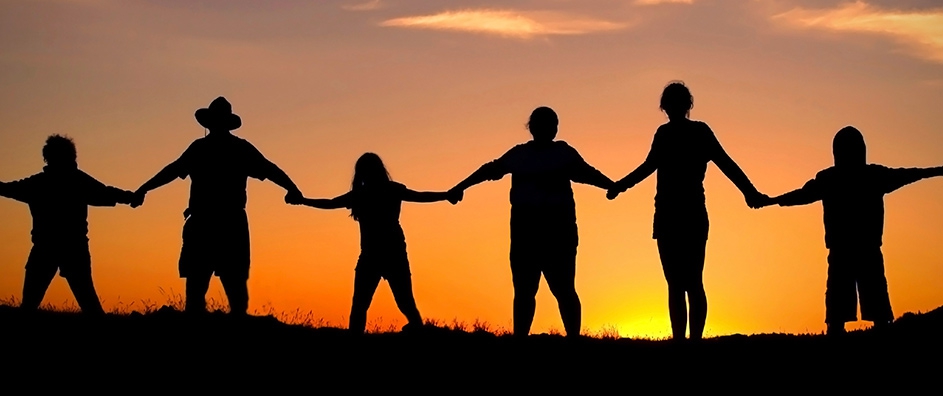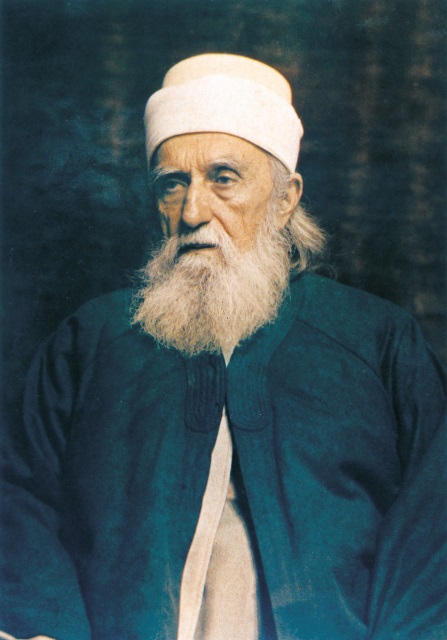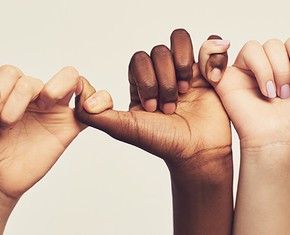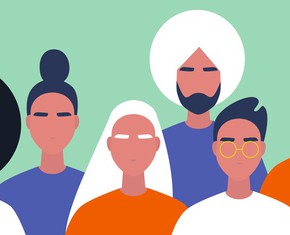The views expressed in our content reflect individual perspectives and do not represent the authoritative views of the Baha'i Faith.
Is it possible for one member of a family to be subjected to the utmost misery and to abject poverty and for the rest of the family to be comfortable? It is impossible unless those members of the family be senseless, atrophied, inhospitable, unkind. Then they would say, “Though these members do belong to our family — let them alone. Let us look after ourselves. Let them die. So long as I am comfortable, I am honored, I am happy — this my brother — let him die. If he be in misery let him remain in misery, so long as I am comfortable. If he is hungry let him remain so; I am satisfied. If he is without clothes, so long as I am clothed, let him remain as he is. If he is shelterless, homeless, so long as I have a home, let him remain in the wilderness.”
Such utter indifference in the human family is due to lack of control, to lack of a working law, to lack of kindness in its midst. If kindness had been shown to the members of this family surely all the members thereof would have enjoyed comfort and happiness. – Abdu’l-Baha, Foundations of World Unity, p. 39.
Abdu’l-Baha had a particularly warm place in his heart for the homeless.
Homeless himself for much of his life, he constantly comforted, fed and clothed the poor and the destitute, devoting his time, resources and energy to their care. His kindness and love for the poor became legendary in the Holy Land and beyond. Literally hundreds of stories about his spiritual actions for the poor fill several books. In this one Myron H. Phelps, an American attorney and visitor to Akka in the early 1900s recounts his own experience witnessing Abdu’l-Baha’s exemplary service to others:
In the cold weather which is approaching, the poor will suffer, for, as in all cities, they are thinly clad. Some day at this season, if you are advised of the place and time, you may see the poor of Akka gathered at one of the shops where clothes are sold, receiving cloaks from the Master. Upon many, especially the most infirm or crippled, he himself places the garment, adjusts it with his own hands, and strokes it approvingly, as if to say, “There! Now you will do well.” There are five or six hundred poor in Akka, to all of whom he gives a warm garment every year…
All the people know him and love him—the rich and the poor, the young and the old… If he hears of any one sick in the city—Muslim or Christian, or of any other sect, it matters not—he is each day at their bedside, or sends a trusty messenger. If a physician is needed, and the patient poor, he brings or sends one, and also the necessary medicine. If he finds a leaking roof or a broken window menacing health, he summons a workman, and waits himself to see the breach repaired. If any one is in trouble—if a son or brother is thrown into prison, or he is threatened at law, or falls into any difficulty too heavy for him—it is the Master that he straightaway makes appeal for counsel or for aid. Indeed, for counsel all come to him, rich as well as poor. He is the kind father of all the people. – Myron Phelps, The Master in Akka, pp. 4-7.
The secret of Abdu’l-Baha’s constancy, service and love, he often explained, came from his acute awareness of the oneness of the human race. More than just a theory or a principle, he literally considered every person a close relative:
All are the servants of God and members of one human family. God has created all and all are His children. He rears, nourishes, provides for and is kind to all. Why should we be unjust and unkind? This is the policy of God, the lights of which have shone throughout the world. His sun bestows its effulgence unsparingly upon all, His clouds send down rain without distinction or favor, His breezes refresh the whole earth. It is evident that humankind without exception is sheltered beneath His mercy and protection. Some are imperfect; they must be perfected. The ignorant must be taught, the sick healed, the sleepers awakened. The child must not be oppressed or censured because it is undeveloped; it must be patiently trained. The sick must not be neglected because they are ailing; nay, rather, we must have compassion upon them and bring them healing. – Abdu’l-Baha, Baha’i World Faith, p. 239.
This central Baha’i teaching removes the old barriers between races, religions and nations. It empowers everyone to love everyone else. It asks each of us to truly care for our relatives.
You May Also Like
Comments


















Abdu’l-Bahá